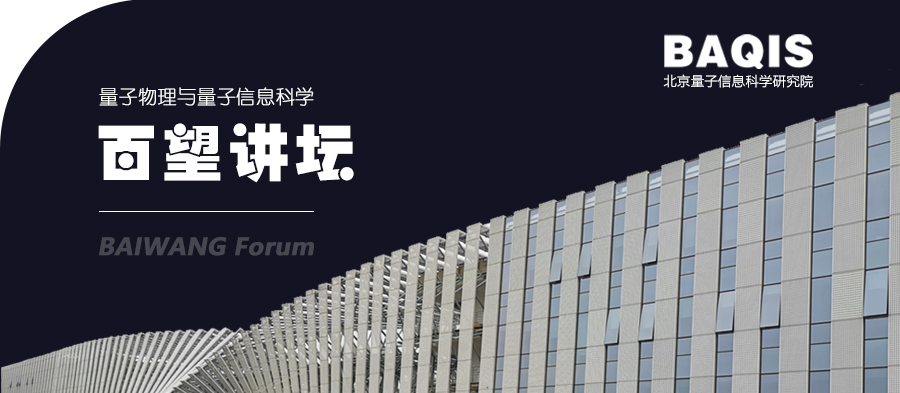Baiwang Forum 31:Spin manipulation with ionic motion in solid state systems
2022/08/11

Date and Time: 11-Aug-2022 9:15am
Speaker: Prof. Guo-Xing Miao, Associate Professor in the Electrical and Computer Engineering Department and is cross-appointed to the Institute for Quantum Computing at the University of Waterloo
Host: Prof. Gui-Lu Long (Tsinghua Univ.& BAQIS)
Title: Spin manipulation with ionic motion in solid state systems
Abstract:
Our research focuses on the transport and manipulation of spin information over functional materials, such as spintronic platforms and topological platforms, for both classical and quantum information processing. Here we look at the transport of very light lithium ions. Being very light makes them practically free from generating undesirable spin scattering thus compatible for spin transport; at the same time, they are physically very small therefore highly mobile, and can transfer and store energy efficiently. Here we illustrate these properties by creating transport devices that can support efficient spin-polarized tunneling and field-driven ionic motion to achieve multibit storage per unit in a battery-like device. Detection on spin information also turns out an effective way to nondestructively monitor ionic motion mechanisms in actual battery systems in real time.
About the Speaker:
Prof. Miao received his PhD from Brown University in 2006, and then went on to roles as a postdoctoral associate and research scientist at the Francis Bitter Magnet Laboratory at MIT. He later joined University of Waterloo in 2011 and is currently Associate Professor in the Electrical and Computer Engineering Department and the Institute for Quantum Computing (IQC). Professor Miao's research interests focus on a particular aspect of the electrons – their spin degrees of freedom, and use precise electron spin manipulation for information processing. His work places a strong emphasis on nano electronics and ionic devices established on newly emerging spin platforms, such as topologically nontrivial and low dimensional materials, where information can be processed coherently on the quantum level, rather than digitally on the classical level.
 中文
中文 Email
Email QCloud
QCloud Log in
Log in
